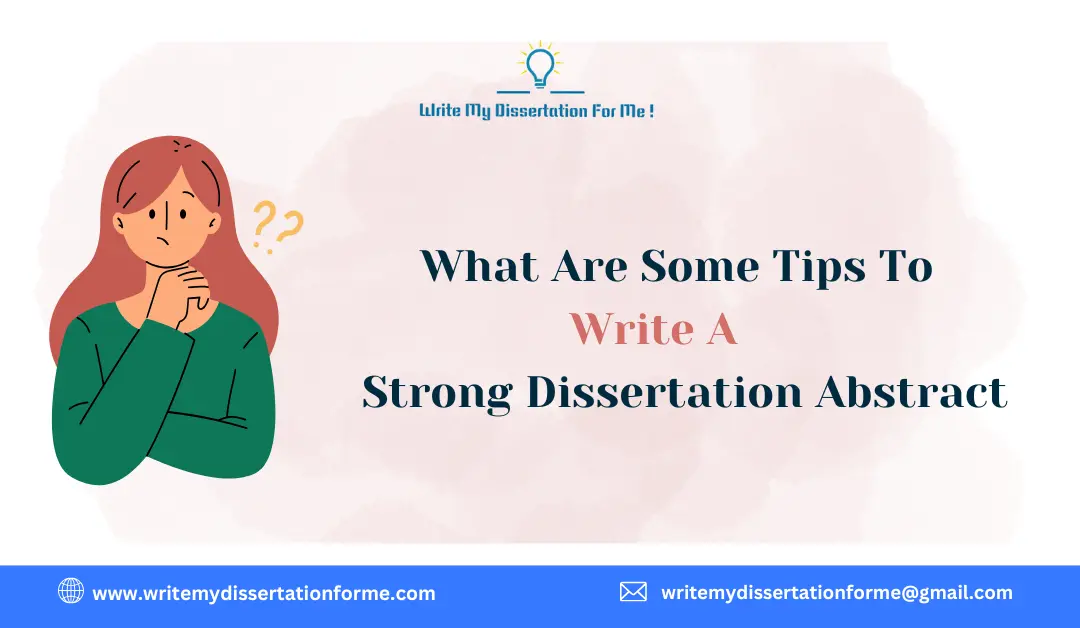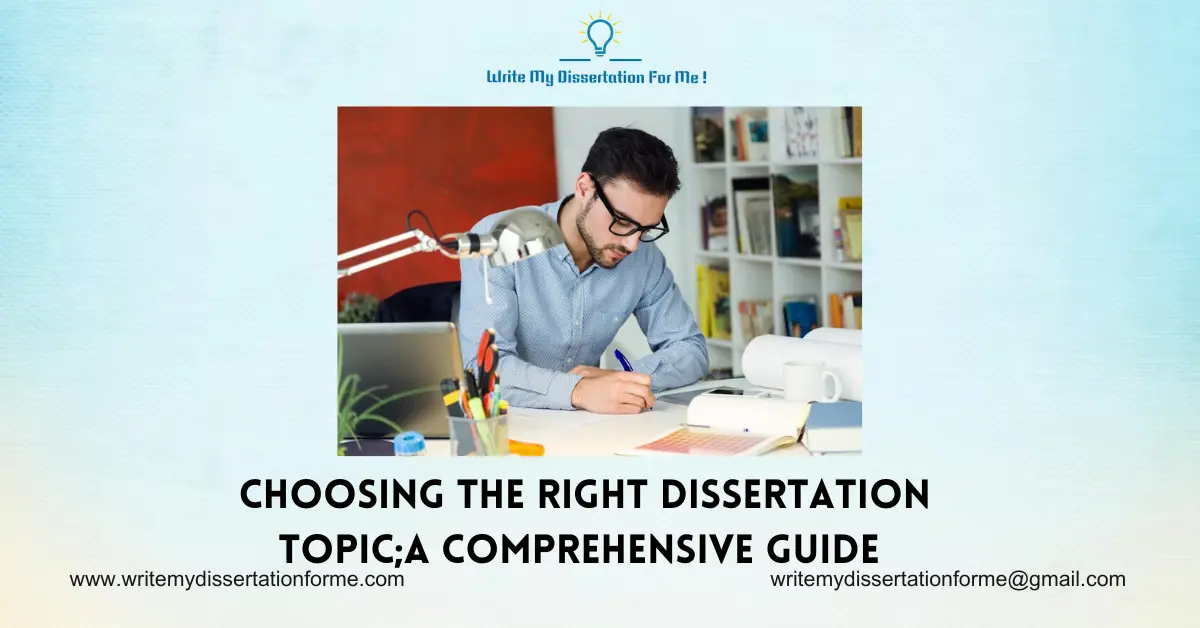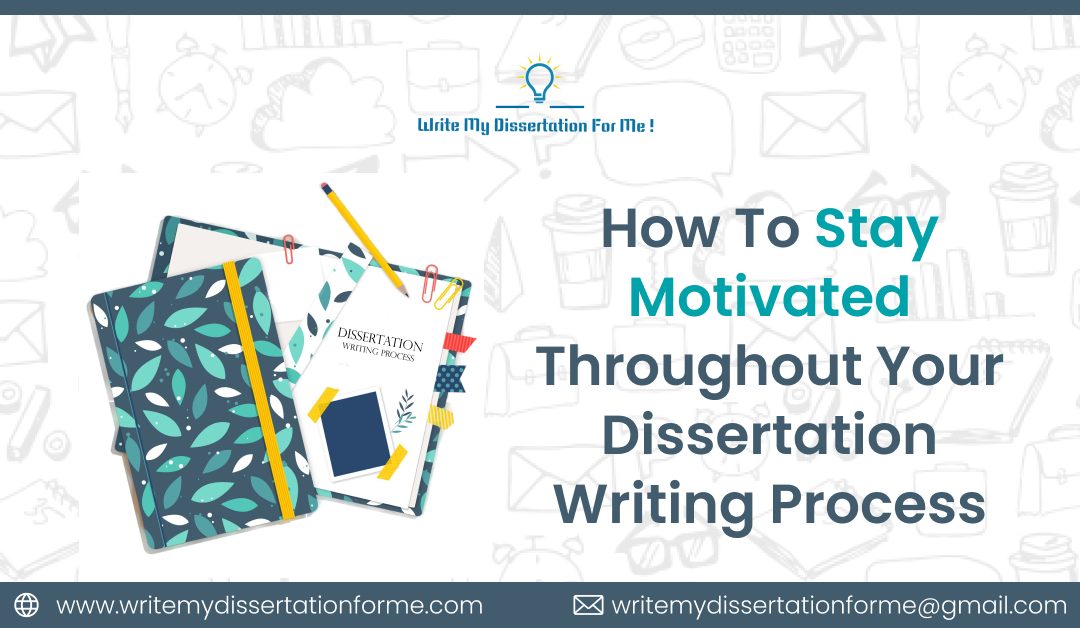What Are Some Tips To Write A Strong Dissertation Abstract
February 26 2025 | 06 min read

One of the most important parts of your dissertation is the abstract. It offers a concise synopsis of your complete dissertation, emphasizing its main conclusions and accomplishments. Often the only section of your dissertation that some people will read, a well-written abstract aids readers in determining whether your work is pertinent to their interests or study. It might be challenging to write a compelling dissertation abstract, but with the correct strategy and focus, you can produce one that successfully conveys the main ideas of your study.
In this blog, we'll go over important guidelines for crafting a compelling dissertation abstract and how they might support students in their academic endeavors.
What Is a Dissertation Abstract?
It's important to comprehend what a dissertation abstract is before going into the advice. A dissertation abstract, which typically ranges from 150 to 300 words, is a succinct synopsis of your research project. An outline of your research topic, goals, approach, results, and conclusions should be included. Giving the reader a concise overview of your dissertation without requiring them to read the full text is the aim of the abstract.
Despite being written last, the abstract is typically one of the first parts of the dissertation. It gives your readers a sneak peek and enables them to rapidly comprehend the breadth and focus of your investigation.
Advice for Composing an Effective Dissertation Abstract:
1. Begin by Outlining the Goal of Your Study:
Clearly stating the goal of your research is the first step in creating a compelling dissertation abstract. Start by stating the problem or research question your dissertation attempts to answer. This way, your viewers will know exactly what your study is aiming to achieve.
For instance: The purpose of this research is to examine the relationship between social media usage and academic performance among college students.
A concise statement of objective makes it easier for the reader to comprehend the significance of your study and the gap in the literature it seeks to address.
2. Summarize Your Key Findings:
After outlining the goal of your study, provide a succinct synopsis of the key conclusions or outcomes. Since it emphasizes how your research advances the field, this is the most crucial section of your abstract. Pay attention to the most important results that address your study topic.
For example: The findings indicate that excessive social media usage negatively impacts academic performance, with students who spend more than three hours a day on social media platforms experiencing a 20% decrease in their GPA.
Make sure your conclusions are succinct but insightful, providing a brief overview of the things your study revealed.
3. Describe the Methodology:
After that, give a succinct explanation of the research process you employed. Did you employ mixed, qualitative, or quantitative methods? Did you carry out experiments, interviews, or surveys? Just enough information should be included to allow the reader to understand how the study was carried out.
For instance: Data from 300 college students was collected using a quantitative survey method. To ascertain whether social media use and academic achievement are correlated, statistical techniques were applied to the data.
The methods that are most pertinent to your research issue should be the main focus of this part, which should be simple.
4. Include Your Conclusions:
The key findings or ramifications of your study should also be included in your abstract. What lessons can be drawn from your research? In what ways do they advance the field? Your conclusions must to be understandable and connected to the goals and outcomes of your study.
For example: The study concludes that limiting social media usage can significantly improve academic performance, and universities should implement programs to raise awareness about the negative impact of excessive social media use on academic success.
By providing conclusions, you demonstrate the worth and applicability of your work and give the reader a clear understanding of your research.
5. Be Concise and Avoid Jargon:
Reducing a long study endeavor to a few hundred words is one of the difficulties of writing a dissertation abstract. It's critical to be succinct and steer clear of superfluous details. Remain focused on the main ideas and make sure each sentence adds to the general synopsis of your study.
Additionally, stay away from employing complicated terminology or technical jargon that could confuse readers. A wide range of readers, including those who might not be subject matter specialists, should be able to understand the abstract. Explain your study using simple, uncomplicated English rather than extremely sophisticated jargon.
6. Use the Past Tense When Writing:
It's crucial to describe your study and findings in the past tense because your dissertation is finished by the time you write the abstract. This makes it clearer that the study has already been done and the findings have been acquired.
For instance: The study analyzed the relationship between social media usage and academic performance.
It is obvious that you are reporting on finished work when you use the past tense.
7. Don't go above the word limit:
Dissertation abstracts are typically limited to 150–300 words at most universities and academic institutes. Following these rules is crucial if you want your abstract to be accepted. Despite the want to add as much information as possible, concentrate on being precise and succinct.
Make sure your abstract satisfies the word count restrictions set by your school without compromising on any crucial information.
8. Revise and Edit Thoroughly:
The initial draft of your dissertation abstract is just the first step. Spend some time carefully editing and revising your draft. Make sure your abstract appropriately conveys the main ideas of your dissertation and look for places where you may simplify or clarify your terminology.
Proofreading is also very important. Make sure your abstract is flawless before submitting it because spelling and grammar mistakes can detract from its professionalism.
9. Seek Feedback:
It can be quite beneficial to get input on your dissertation abstract from classmates, colleagues, or your advisor. They can assist you pinpoint areas that could be confusing and provide ideas for improvement. Errors or inconsistencies that you might have overlooked while writing can be discovered by a new reader.
You might also think about using a professional dissertation writing service if you need help or are having trouble composing your abstract. These businesses can offer professional advice and assistance if you're wondering, Can someone write my dissertation for me? or Write my dissertation abstract for me.
Why Is Writing a Strong Dissertation Abstract Important?
A compelling dissertation abstract accomplishes several goals. It helps you draw the correct audience to your work in addition to providing a summary of your research. The abstract will probably be the first (and maybe the only) section that prospective readers or researchers see when they find your dissertation. A strong abstract might grab their attention and motivate them to read your dissertation more thoroughly.
A compelling abstract can also increase your work's exposure in search engines and online databases. Your abstract can improve your dissertation's search engine ranking and make it simpler for people to locate your study by incorporating pertinent keywords and concise explanations.
Conclusion:
It takes careful consideration, precision, and clarity to write an excellent dissertation abstract. These guidelines will help you create an abstract that highlights the importance of your work and succinctly outlines your research. A strong abstract is crucial to leaving a good impression on your readers, regardless of whether you're working on your dissertation or thinking about getting professional help.
If the question, Can someone write my dissertation for me? ever crosses your mind, or Compose my dissertation abstract for me, don't be afraid to ask professional dissertation writing services for assistance. They can help you with the process and guarantee that your dissertation and abstract are of the best caliber.
By investing time and energy into your dissertation abstract, you are laying the groundwork for a larger audience to identify and value your study.
If you loved reading this, please share this,
also read

Choosing the Right Dissertation Topic; A Comprehensive Guide
A major turning point in a student's academic career is starting the process of writing a dissertation. A crucial decision th...

How to Stay Motivated Throughout Your Dissertation Writing Process
Composing a dissertation is an enormous undertaking that calls for commitment, perseverance, and unshakable drive. 'Can I pay...

Write My Mathematics Dissertation For Me
Starting a dissertation in mathematics can be a demanding but intellectually fascinating process. From developing theories to...